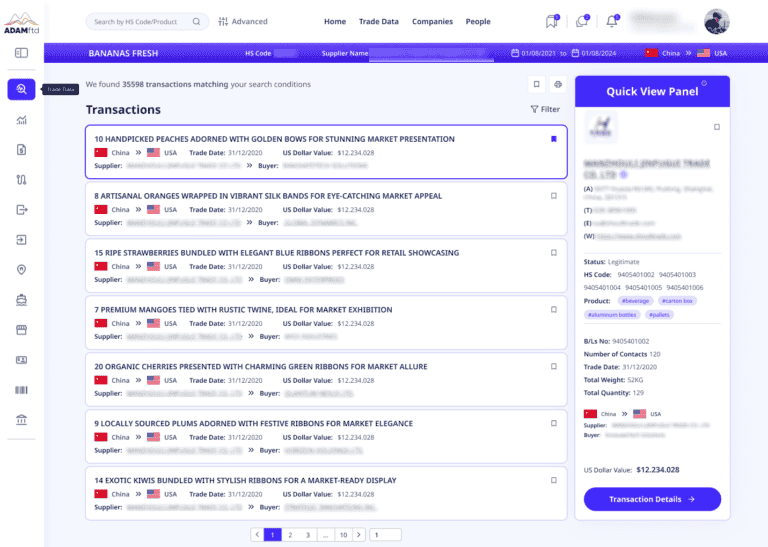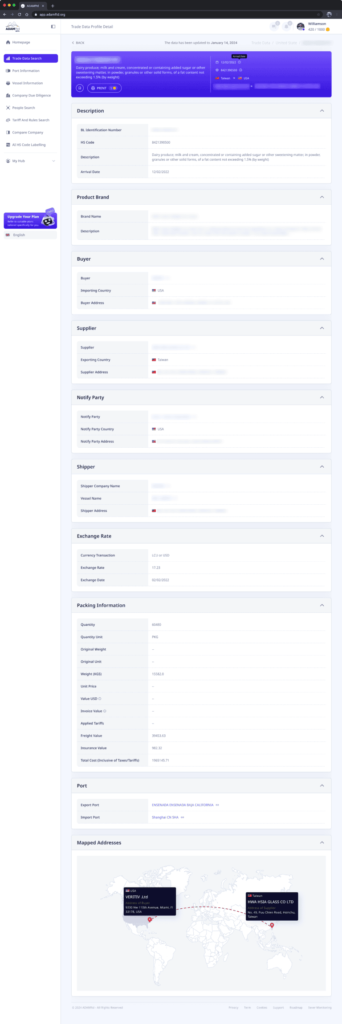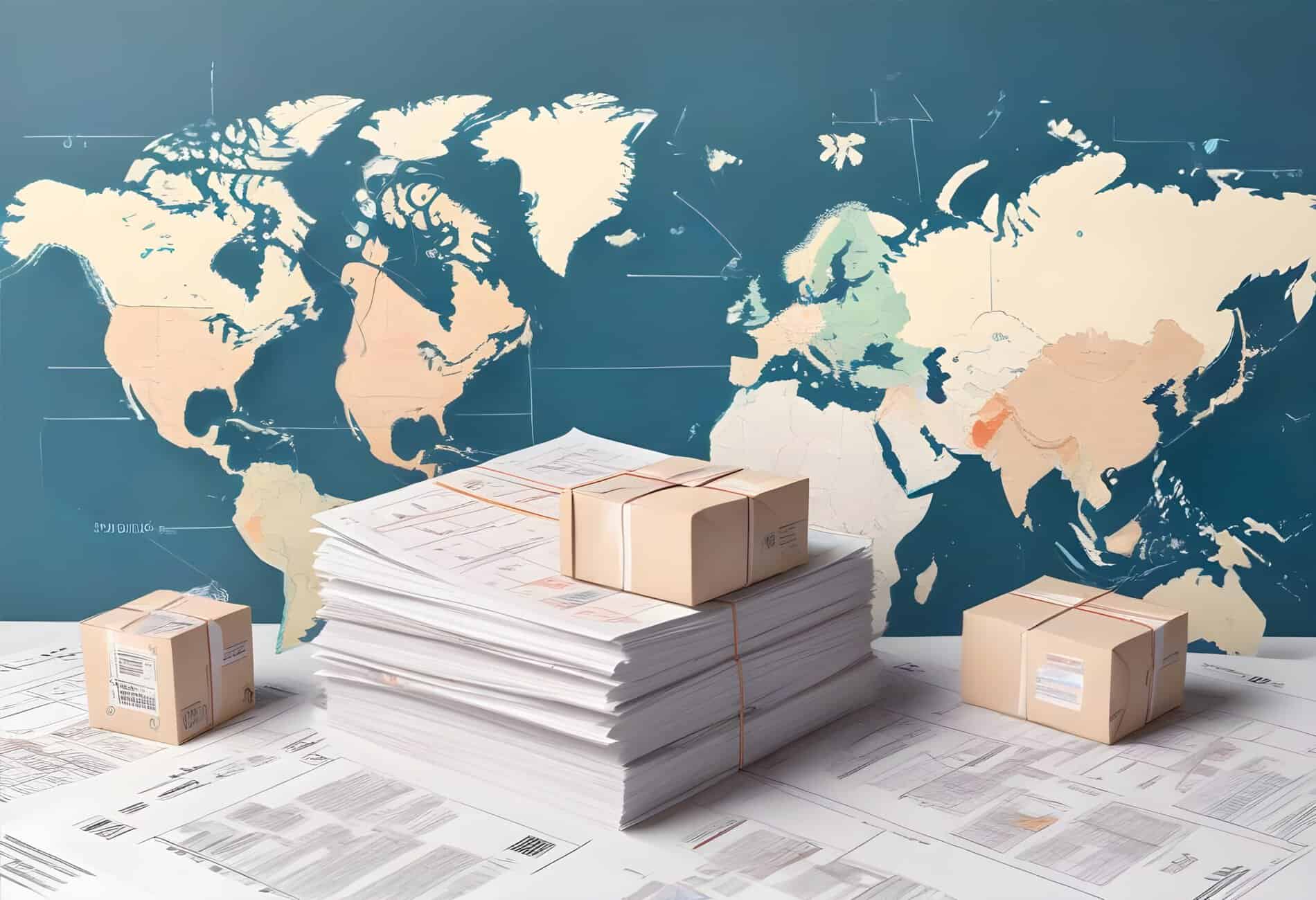Global Bill of Lading Search
ADAMftd provides a powerful tool for searching hundreds of millions of bills of lading and customs declarations, allowing users to filter by specific products, export and import countries, weight, quantity, price, and other metrics. As illustrated in the image, users can easily navigate through a comprehensive database of transactions, gaining insights into trade activities. This feature enables detailed analysis of trade flows, market trends, and competitive landscapes, supporting businesses in making informed decisions, optimizing supply chains, and identifying new opportunities in international trade. With detailed transaction data and intuitive search capabilities, ADAMftd enhances transparency and efficiency in global trade management.

Detailed Bill of Lading Analysis
ADAMftd offers detailed bill of lading analysis, which is crucial for tracking discrepancies and ensuring the accuracy of trade transactions. This feature provides comprehensive data on product information, weight, pricing, country of origin, buyer, seller, shipping method, and sanctions screening. By serving as the ultimate source of truth for trade finance and trade insurance, ADAMftd’s bills of lading are meticulously appended with additional data to verify the accuracy of the information. This integration includes linking to the actual companies involved in transactions, thereby providing users with a reliable and transparent view of global trade activities. This detailed analysis aids in mitigating risks, enhancing compliance, and supporting informed decision-making in international trade operations.

Bill of Lading Analysis Use Cases

Ensuring Accurate Shipment Information
Detailed bills of lading provide essential information about shipment details, including weight, volume, and contents. This ensures that businesses receive accurate and complete data about their own (and their competitors) shipments, facilitating proper inventory management and reducing discrepancies in order fulfillment.

Monitoring Shipment Progress
By accessing detailed bills of lading, businesses can track the status of their (and their competitors) shipments. This information helps in monitoring the movement of goods, predicting delivery times, and communicating accurate updates to customers, enhancing overall supply chain visibility and reliability.

Evaluating Timeliness and Accuracy
Detailed bills of lading allow businesses to evaluate the performance of their suppliers based on the timeliness and accuracy of shipments. This helps in identifying reliable suppliers, addressing issues with late or incorrect deliveries, and maintaining high standards of supply chain efficiency.

Meeting Import/Export Requirements
Access to detailed bills of lading ensures that shipments comply with international trade regulations, including proper documentation of goods. This compliance is crucial for avoiding legal penalties, ensuring smooth customs clearance, and facilitating hassle-free international trade operations.

Identifying Market Trends and Opportunities
Detailed bills of lading provide valuable data on trade patterns, including the frequency and volume of shipments. Analyzing this data helps businesses identify market trends, discover new opportunities, and make informed decisions about market entry and expansion strategies.

